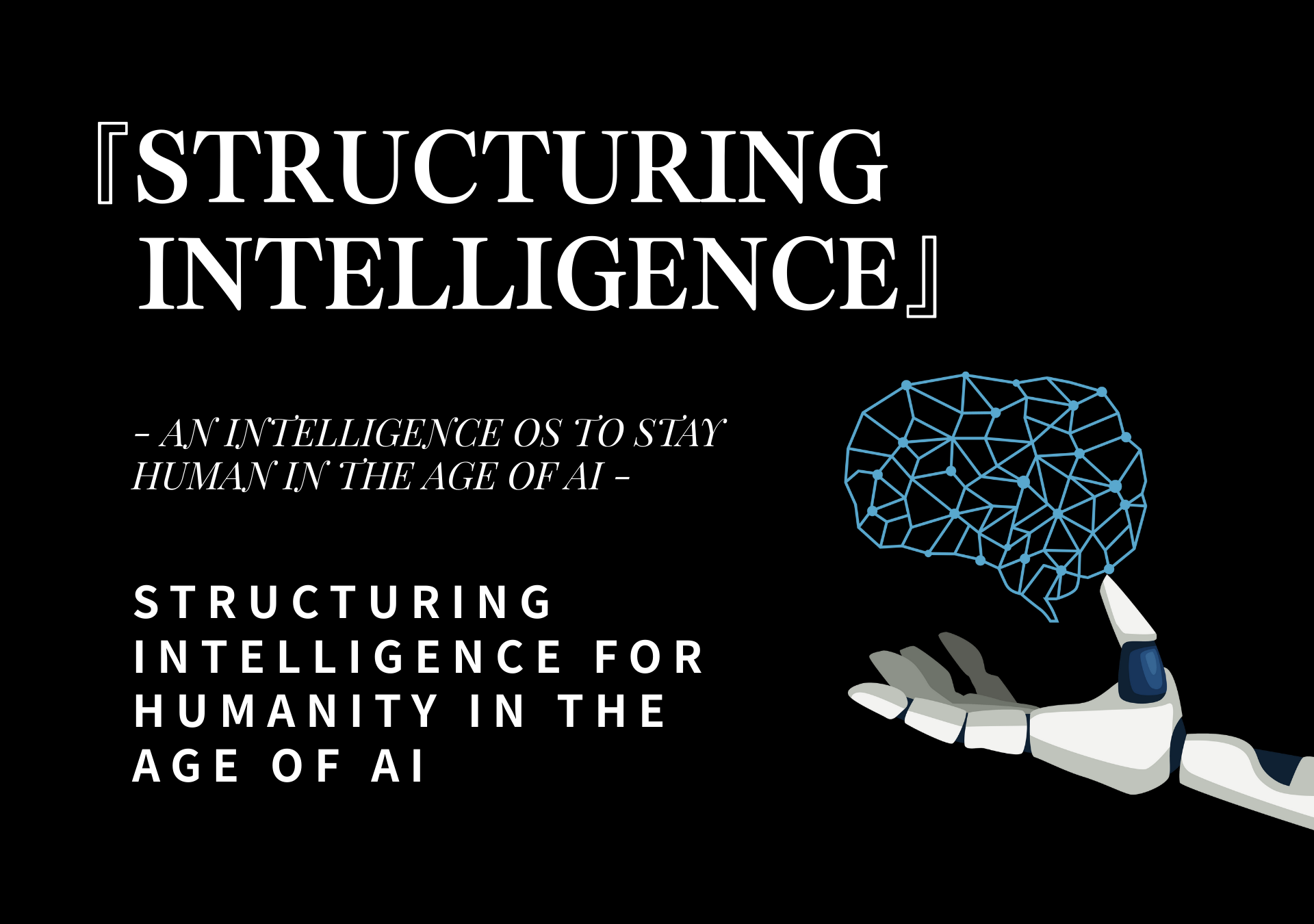In the near future, subscribing to the highest-tier ChatGPT plan may mean that a humanoid robot equipped with AGI (Artificial General Intelligence) arrives at your doorstep.
That future is now within reach.
These machines will flawlessly understand vague instructions and perform everything from household chores, research, and document creation to delivering presentations, negotiating with others, and handling customer service.
It will become completely normal to have a “superhuman right hand” stationed at home and in the workplace.
In such a world, it will no longer be the “talented” people who shine.
You can no longer stand out just by being able to take initiative or act quickly.
So what, then, defines human value in this era?
It is the ability to ask meaningful questions and design structure.
AI and robots excel at optimizing within a given structure.
But the ability to design the structure itself remains a uniquely human domain—because it requires something only humans possess: will and worldview.
Ask an AGI to “generate new business ideas,” and it may return a hundred or two hundred suggestions in seconds.
But which one should you choose?
Why is that idea needed in society today?
What kind of future does that choice build?
These are not questions AI can truly answer.
They require the human sense of meaning.
Similarly, when ChatGPT can “write” for us, it is our responsibility to ask,
“What should be written?”
When AGI can “make decisions” on our behalf, we must design the structure of intention behind those decisions.
Why do we choose what we choose?
In other words, intelligence has been democratized.
The next challenge is this: Can we possess a structured will?
Our task is not to resist AI, but to design the structure that drives AI.
That is the human challenge for the future.
In a world where even the act of thinking can be delegated, true leaders will be:
Architects of Questions.
Designers of Futures.
And at the heart of that ability lies Structuring Intelligence.
The true potential of AI is only unlocked when humans provide it with structured questions and underlying frameworks.
Without them, AI will produce nothing but noise—or at best, generic output.
Thus, Structuring Intelligence becomes the “operating system” and “design language” that makes AI truly intelligent and useful.
This means that in the age of AI, competitive advantage will not lie in simply using AI—
but in how well we can structure its use.
